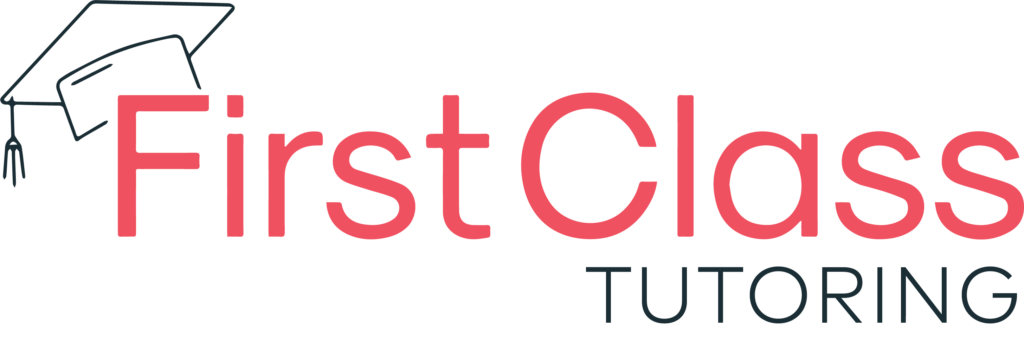In today’s educational landscape, teachers play a vital role in shaping the minds of future generations. However, the traditional classroom setting often presents limitations in meeting the diverse needs of individual students. As education continues to evolve, an increasing number of teachers are embracing part-time tutoring as a means to provide personalized and targeted support. In this blog post, First Class Tutoring will explore the benefits of teachers becoming part-time tutors, supported by research statistics and *real-world examples.
- Personalized Learning Opportunities
One of the significant advantages of part-time tutoring is the ability to deliver personalized learning experiences. Research conducted by the Education Endowment Foundation found that one-to-one tutoring can result in significant learning gains for students. Personalized instruction allows teachers to tailor their teaching methods, pace, and content to suit the unique learning styles and needs of individual students. By offering personalized attention, teachers-turned-tutors can ensure that every student receives the support necessary to thrive academically.
Sarah, a high school teacher, noticed that some of her students struggled with algebra concepts. By offering part-time tutoring sessions, she could dedicate more time to help these students individually, breaking down complex topics into manageable steps. As a result, their confidence and understanding improved, leading to better grades in class.
- Targeted Remediation and Enrichment
Part-time tutoring provides teachers with an opportunity to address specific academic challenges that students face. Whether it’s helping struggling learners catch up or providing additional enrichment for advanced students, tutors can focus on the areas where students need the most support. A meta-analysis of tutoring programs conducted by the U.S. Department of Education found that targeted tutoring interventions have a significant positive impact on student achievement.
Omar, an elementary school teacher, noticed that several of his students struggled with reading comprehension. He started offering part-time tutoring sessions, using research-based strategies to help these students improve their reading skills. Over time, their comprehension levels increased, and they became more confident readers in the classroom.
- Enhanced Communication and Collaboration
Part-time tutoring also fosters stronger relationships between teachers, students, and their families. Regular communication and collaboration with parents and guardians can help tutors gain valuable insights into a student’s background, interests, and learning preferences. This holistic approach enables tutors to create a supportive and engaging learning environment tailored to the student’s needs.
Lisa, a middle school teacher, decided to offer part-time tutoring sessions to a student who frequently struggled with completing assignments. By discussing the student’s challenges with their parents during tutoring sessions, Lisa was able to provide targeted strategies and recommendations for the student’s parents to reinforce at home. This collaborative effort resulted in improved performance and increased parental involvement in the student’s education.
- Professional Growth and Supplemental Income
Beyond the benefits to students, becoming a part-time tutor offers teachers a range of professional growth opportunities. By working closely with individual students outside the traditional classroom setting, teachers can deepen their understanding of diverse learning needs, develop new instructional strategies, and refine their communication skills. Additionally, tutoring can serve as a valuable source of supplemental income for teachers, enabling them to invest in their professional development or personal pursuits.
David, a high school math teacher, embraced part-time tutoring as a way to expand his expertise and explore alternative teaching methods. Through his tutoring experiences, he discovered a passion for incorporating technology into his classroom and began integrating online tools and interactive activities to enhance his students’ learning experience.
Conclusion
Part-time tutoring empowers teachers to provide personalized instruction, target specific academic needs, enhance communication and collaboration, and fuel their own professional growth. As research and real-world examples demonstrate, teachers who become part-time tutors unlock new opportunities for student success while nurturing their own professional development. By embracing part-time tutoring, teachers can make a lasting impact on the lives of their students, fostering a love for learning and helping them achieve their full potential.
As educators, it is essential to recognize the evolving needs of students and adapt our teaching practices accordingly. Part-time tutoring allows teachers to go beyond the constraints of the traditional classroom, providing individualized support that can make a significant difference in a student’s academic journey. By leveraging research statistics and real-world examples, we can see the transformative power of teachers becoming part-time tutors.
So, if you are a teacher looking to make a greater impact on your students’ lives, consider exploring part-time tutoring with First Class Tutoring. Embrace the opportunity to personalize learning experiences, target specific areas for remediation and enrichment, enhance communication and collaboration with students and their families, and fuel your own professional growth. By stepping into the role of a part-time tutor, you can empower students, nurture their love for learning, and unlock their true potential.
Together, let’s embrace the power of part-time tutoring and create a brighter future for our students.
References:
- Education Endowment Foundation. (2018). Teaching and Learning Toolkit: A Summary of Educational Research. Retrieved from https://educationendowmentfoundation.org.uk/evidence-summaries/teaching-learning-toolkit
- U.S. Department of Education, Institute of Education Sciences. (2016). What Works Clearinghouse. Tutoring Programs. Retrieved from https://ies.ed.gov/ncee/wwc/PracticeGuide/2
*Note: First Class Tutoring takes privacy seriously. The examples provided in this post are fictional and intended for illustrative purposes only.
